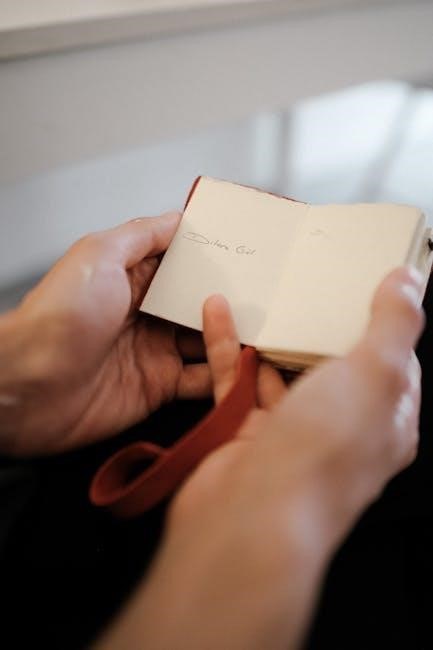karen read witness list pdf
Karen Read is accused of murdering her boyfriend‚ Boston Police Officer John O’Keefe‚ in 2022. Her retrial has sparked widespread attention due to extensive witness lists and public interest.

Overview of the Witness List
The witness list for Karen Read’s retrial includes 91 prosecution witnesses and 105 defense witnesses‚ featuring civilians‚ law enforcement‚ and experts‚ with some overlapping names from the first trial.
2.1. Prosecution’s Witness List
The prosecution’s witness list includes 91 individuals‚ featuring key figures like Brian Albert and his family‚ who were present on the night of the incident‚ and Jennifer McCabe‚ a close friend of the victim. Law enforcement personnel‚ including first responders and investigators‚ are also listed to provide critical testimony. Additionally‚ expert witnesses‚ such as forensic specialists and medical examiners‚ are expected to offer technical insights. This diverse group aims to reconstruct the events surrounding John O’Keefe’s death and establish a timeline of Karen Read’s actions. The prosecution’s strategy relies heavily on these witnesses to build a compelling case‚ focusing on both direct evidence and circumstantial details.
2.2. Defense’s Witness List
Karen Read’s defense team has submitted a comprehensive witness list of 91 individuals‚ aiming to challenge the prosecution’s narrative. Notably‚ the list includes Michael Proctor‚ a former Massachusetts State Trooper‚ whose testimony could provide alternative perspectives. Civilian witnesses‚ such as friends and acquaintances‚ are expected to testify about Read’s character and behavior. Law enforcement witnesses may offer insights that contradict the prosecution’s claims. Expert witnesses‚ including forensic specialists‚ will likely present evidence to support Read’s innocence. The defense strategy focuses on creating reasonable doubt by highlighting inconsistencies and presenting alternative theories. This extensive list reflects the defense’s effort to present a robust case‚ ensuring all aspects of the incident are thoroughly examined.
2.3. Key Differences Between the Two Lists
The prosecution and defense witness lists in the Karen Read case reveal distinct strategies. The defense’s list includes 91 names‚ 14 more than the prosecution’s 77‚ reflecting a broader approach to challenge the prosecution’s narrative. Notably‚ the defense has added Michael Proctor‚ a controversial former trooper‚ potentially to introduce alternative theories. In contrast‚ the prosecution’s list focuses on civilians like the Albert family and first responders‚ aiming to build a chronological account of events. The defense emphasizes expert witnesses to discredit forensic evidence‚ while the prosecution relies on law enforcement testimony to establish a timeline. These differences highlight contrasting approaches: the defense seeks to create doubt‚ while the prosecution aims to construct a clear narrative of guilt.

Prosecution’s Witness List in Detail
The prosecution’s witness list includes civilians like the Albert family‚ law enforcement officers‚ and expert witnesses‚ aiming to establish a timeline and link Karen Read to the crime.
3.1. Civilian Witnesses
The prosecution’s civilian witnesses include Brian Albert‚ a retired Boston police officer‚ and his family‚ who were present at the scene. These witnesses provide crucial testimony about the events of the night‚ offering insights into Karen Read’s behavior and interactions with John O’Keefe. Brian Albert’s testimony is particularly significant‚ as he hosted Read and O’Keefe at his home‚ where the events unfolded. Additionally‚ other civilians‚ such as neighbors and acquaintances‚ are expected to testify about their observations‚ helping to reconstruct the timeline leading up to O’Keefe’s death. Their accounts are vital in establishing the circumstances surrounding the incident and may influence the jury’s perception of Read’s involvement.
3.2. Law Enforcement and First Responders
Law enforcement and first responders play a critical role in the prosecution’s case‚ with several officers and investigators testifying. Sgt. Yuri Bukhenik‚ a key investigator‚ is expected to detail the evidence collected from the crime scene. Additionally‚ officers who responded to the incident will provide accounts of what they observed upon arrival. Their testimony will focus on the initial assessment of the scene and any statements made by Karen Read. Expertise from first responders‚ such as paramedics‚ will also be presented to describe the condition of the victim and the immediate actions taken. These witnesses are essential in establishing the timeline of events and the handling of evidence‚ which are pivotal in building the prosecution’s narrative.
3.3. Expert Witnesses
Expert witnesses are crucial in the prosecution’s case‚ offering specialized knowledge to interpret evidence. Among them are forensic experts‚ such as Andre Porto from the Massachusetts State Police Crime Lab‚ who will analyze physical evidence like DNA and fingerprints. Dr. Andrew Rentschler‚ a forensic pathologist‚ is expected to testify about the cause and manner of John O’Keefe’s death‚ providing critical insights into the autopsy findings. Additionally‚ digital forensic experts will discuss the analysis of electronic devices‚ including text messages and call logs‚ which may reveal crucial communication patterns. These experts will help jurors understand complex evidence‚ linking it to the events surrounding the case. Their testimony is vital for establishing a scientific foundation for the prosecution’s arguments.

Defense’s Witness List in Detail
The defense has listed 91 potential witnesses‚ including disgraced Trooper Michael Proctor‚ Albert family members‚ and experts like pathologists and digital forensic specialists to challenge the prosecution’s case.
4.1. Civilian Witnesses
The defense’s civilian witnesses include Brian Albert‚ a retired Boston police officer‚ and his family members‚ who were present at the scene and can provide critical testimony. Additionally‚ Jennifer McCabe‚ a close friend of the victim‚ and Kerry Roberts are expected to offer insights into the events surrounding the case. Their testimonies aim to establish an alternative narrative‚ challenging the prosecution’s version. These witnesses are crucial as they provide firsthand accounts and personal interactions with the accused‚ potentially influencing the jury’s perception of Karen Read’s actions and intentions. Their inclusion underscores the defense’s strategy to humanize the defendant and present a more nuanced view of the incident.
4.2. Law Enforcement Witnesses
The defense’s law enforcement witnesses include former Massachusetts State Trooper Michael Proctor‚ whose credibility has been questioned due to past controversies. Additionally‚ Sgt. Yuri Bukhenik and other investigators who handled the case are expected to testify‚ offering detailed accounts of the evidence collection and initial findings. These witnesses are crucial as they provide professional insights into the investigation’s integrity and potential flaws. Their testimonies aim to challenge the prosecution’s narrative by highlighting any inconsistencies or overlooked details. Proctor’s involvement‚ despite his tarnished reputation‚ suggests the defense is seeking to leverage his knowledge of police procedures to support their case. Overall‚ these law enforcement witnesses play a pivotal role in shaping the defense’s argument and undermining the prosecution’s evidence. Their expertise and firsthand involvement make their testimonies highly significant in the trial’s outcome.
4.3. Expert Witnesses
The defense has enlisted several expert witnesses to support their case‚ including forensic specialists and legal analysts. One notable expert is Andrew Rentschler‚ PhD.‚ who specializes in crime scene reconstruction and may challenge the prosecution’s forensic evidence. Another expert‚ Andrew Klane‚ a local authority on evidence handling‚ is expected to testify about potential procedural flaws during the investigation. These experts aim to provide alternative interpretations of key evidence‚ such as DNA analysis and crime scene dynamics‚ which could cast doubt on the prosecution’s claims. Additionally‚ the defense may call upon psychological experts to assess Karen Read’s state of mind‚ further bolstering their argument; The inclusion of these specialists underscores the defense’s strategy to discredit the prosecution’s case through scientific and analytical rigor‚ potentially swaying the jury in their favor. Their testimonies are critical in countering the prosecution’s expert witnesses and presenting a more favorable narrative for Read.

Key Witnesses and Their Testimonies
Brian Albert‚ Jennifer McCabe‚ and Michael Proctor are central figures‚ providing pivotal testimonies that shape the case’s narrative and credibility‚ each offering unique insights into the events surrounding O’Keefe’s death.
5.1. Brian Albert and His Family
Brian Albert‚ a retired Boston police officer‚ and his family were pivotal witnesses in the Karen Read trial. They provided critical testimony about the events surrounding John O’Keefe’s death‚ offering detailed accounts of interactions with Read and O’Keefe on the night of the incident. Brian’s family members‚ including his children‚ shared their observations‚ which were crucial for establishing the timeline and circumstances leading to O’Keefe’s death. Their testimonies highlighted potential behavioral patterns of Read‚ which prosecutors used to build their case. The Albert family’s statements were significant in shaping the narrative‚ as they were among the last to see O’Keefe alive. Their accounts were thoroughly scrutinized by both the prosecution and defense‚ making them central to the trial’s outcome.
5.2. Jennifer McCabe
Jennifer McCabe‚ a close friend of John O’Keefe‚ testified in Karen Read’s trial‚ providing emotional and detailed testimony about her interactions with both the victim and the defendant. McCabe’s testimony highlighted her observations of Read’s behavior‚ which she described as erratic and suspicious in the days leading up to O’Keefe’s death. She also shared personal conversations with O’Keefe‚ where he expressed concerns about his relationship with Read. McCabe’s account painted a picture of a troubled dynamic between the couple‚ which prosecutors used to suggest motive. Her testimony was significant as it offered insight into the personal lives of those involved‚ making her a key witness for the prosecution. McCabe’s statements were subject to rigorous cross-examination by the defense‚ who challenged her credibility and the reliability of her recollections.
5.3. Michael Proctor
Michael Proctor‚ a former Massachusetts State Trooper‚ emerged as a controversial figure in Karen Read’s retrial. Initially part of the investigation‚ Proctor’s credibility was questioned due to his own legal troubles‚ including charges of misconduct. Despite this‚ he was included in the defense’s witness list‚ suggesting his testimony might offer alternative perspectives on the case. Proctor’s involvement added complexity to the trial‚ as his reliability was scrutinized by both sides. His potential testimony could have provided insights into the handling of evidence or the initial investigation‚ potentially benefiting the defense. However‚ his tarnished reputation posed a risk‚ making his impact on the jury uncertain. Proctor’s role in the trial underscored the challenges of balancing witness credibility with the need for thorough investigation in high-stakes cases like Read’s.

Trial Outcome and Acquittal
Karen Read’s retrial concluded with her acquittal‚ as the jury delivered a “not guilty” verdict in the murder of her boyfriend‚ Boston Police Officer John O’Keefe. The outcome marked a dramatic turn in a case that had captivated public attention for years. Read’s legal team successfully raised doubts about the prosecution’s evidence‚ leading to the dismissal of charges. The acquittal sparked mixed reactions‚ with supporters celebrating her freedom while others expressed disappointment. The trial’s outcome highlighted the challenges of prosecuting high-profile cases with complex circumstantial evidence. Read’s acquittal also raised questions about justice for the victim and his family. The case remains a polarizing topic‚ with ongoing discussions about the legal system’s handling of the matter. The acquittal brought closure to Read‚ though the emotional and legal battles’ impact on all parties involved remains profound.

Impact of the Witness Testimonies
The testimonies of key witnesses played a pivotal role in shaping the trial’s outcome. Brian Albert and his family provided critical accounts of the events surrounding John O’Keefe’s death‚ offering insights into Read’s behavior. Jennifer McCabe‚ a friend of O’Keefe‚ testified about their relationship dynamics‚ while Michael Proctor‚ a disgraced trooper‚ added controversial testimony. These testimonies influenced the jury’s perception‚ with some supporting the prosecution’s narrative and others casting doubt. The credibility of each witness was scrutinized‚ particularly Proctor‚ whose involvement drew skepticism. The defense effectively highlighted inconsistencies‚ undermining the prosecution’s case. Ultimately‚ the testimonies swayed the jury toward acquittal‚ emphasizing the importance of witness reliability in high-stakes trials. The impact of these testimonies underscores how witness accounts can significantly alter the trajectory of a case.

Notable Witnesses in the Retrial
The retrial of Karen Read featured several notable witnesses whose testimonies were crucial. Brian Albert‚ a retired Boston police officer‚ and his family members provided firsthand accounts of interactions with Read and O’Keefe. Jennifer McCabe‚ a close friend of the victim‚ shared insights into his personal life and relationship with Read. Michael Proctor‚ a former state trooper with a controversial past‚ testified for the defense‚ drawing attention due to his credibility issues. Additionally‚ expert witnesses like Andre Porto from the Massachusetts State Police Crime Lab offered technical analyses. These witnesses brought diverse perspectives‚ ranging from personal connections to professional expertise‚ making their testimonies pivotal in the case. Their involvement underscored the complexity of the trial and the importance of each voice in shaping the narrative.

Financial Aspects of the Trial
The Karen Read trial has been marked by significant financial implications. Special prosecutor Hank Brennan earned over $560‚000 for his role in the retrial‚ while Alan Jackson‚ Read’s defense attorney‚ estimated that his firm would bill a combined $10 million for both trials. These figures highlight the high costs associated with such complex and high-profile cases. The financial burden extends beyond legal fees‚ encompassing expenses for expert witnesses‚ evidence analysis‚ and court operations. The substantial investment underscores the gravity of the case and the resources allocated to ensure a thorough legal process. Public interest in the trial has also drawn attention to the economic impact on all parties involved‚ making it a focal point of discussion beyond the legal proceedings themselves.

Media Coverage and Public Reaction
The Karen Read trial has garnered extensive media coverage‚ with daily recaps and live streams drawing significant public interest. Major outlets like NBC Boston and The Patriot Ledger have provided detailed updates‚ making the case a focal point of true crime discussions. Social media platforms have been flooded with opinions‚ theories‚ and reactions‚ reflecting a divided public sentiment. While some express support for Read‚ others remain skeptical of her innocence. The case’s dramatic nature‚ involving a police officer and allegations of murder‚ has captivated audiences‚ leading to comparisons with popular crime documentaries. The media’s role in shaping public perception has been substantial‚ with many following each twist and turn‚ ensuring the trial remains a topic of widespread conversation and debate.
The Karen Read case has been a complex legal saga marked by extensive witness testimonies and significant public interest. The prosecution and defense presented detailed witness lists‚ including civilians‚ law enforcement‚ and experts‚ aiming to build compelling narratives. The retrial’s outcome‚ Read’s acquittal‚ has sparked debates about justice and evidence. Media coverage played a pivotal role in shaping public opinion‚ with many following the trial’s developments closely. The case highlights the challenges of reconstructing events and the impact of witness testimonies on trial outcomes. While the legal chapter has closed‚ the societal and emotional repercussions continue to resonate‚ leaving a lasting impression on all involved.